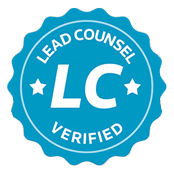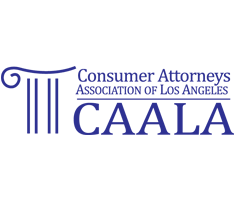As we age, driving can become more difficult. However, for many seniors, driving represents freedom and independence. Deciding when it’s time to stop driving can be extremely difficult. This article explores the warning signs that indicate driving may no longer be safe for senior drivers and provides tips on keeping senior drivers safe.
Changes in Vision
Vision is critical for safe driving. Some common vision problems that can affect senior drivers include:
- Reduced peripheral vision – Makes it harder to see pedestrians, cyclists, and other vehicles.
- Reduced depth perception – Makes it difficult to judge distances and speed of oncoming vehicles.
- Increased sensitivity to glare – Bright sunlight, headlights, and glare from wet roads can make it very difficult to see.
- Cataracts – Clouding of the eyes that leads to fuzzy and dimmed vision.
- Macular degeneration – Damages central vision and ability to see fine details.
If a senior is experiencing any vision changes, such as needing to rely more on reading glasses or having trouble seeing at night, it’s important to schedule a comprehensive appointment with an eye doctor for evaluation. In addition to assessing visual acuity, eye doctors can check peripheral vision, glare recovery, and other aspects that relate to driving ability. Vision aids like new glasses or contacts, sunglasses, and visors may help compensate for some vision loss.
Age-Related Cognitive Decline
Normal aging can lead to cognitive changes that make driving more difficult, including:
- Reduced processing speed – Takes longer to recognize hazards and react.
- Short-term memory loss – Forgets where they are going, misses exits.
- Reduced attention span and increased distraction – Easier to lose focus.
- Difficulty performing multiple tasks – Struggles with navigation, radio, and driving simultaneously.
Cognitive training exercises like puzzle games may help improve some skills, such as processing speed and divided attention. However, age-related cognitive decline still needs to be taken very seriously as a major risk for unsafe driving. Unlike vision or physical impairments, there are no devices or aids that can compensate for reduced cognitive ability.
Physical Limitations
Age-related physical changes like stiff joints, weaker muscles, and slower reflexes can interfere with driving ability:
- Reduced flexibility – Makes it harder to turn to check blind spots, see behind when backing up, and fasten seatbelts.
- Diminished strength – Can make it difficult to control the steering wheel, press brakes, and make sudden movements.
- Slower reaction time – Takes longer to act to avoid collisions.
- Use of medications – Some prescriptions and over-the-counter meds can cause drowsiness.
Regular stretching, strength training with resistance bands, and physical activity can help older adults retain their flexibility, muscle tone, and reaction time.
Warning Signs It May Be Time to Stop Driving
Family and friends should look out for these common warning signs that indicate driving may no longer be safe for senior drivers:
- Getting lost in very familiar locations they’ve driven to for years
- Delayed response to unexpected situations like a pedestrian suddenly crossing
- Occasionally hitting curbs when making routine turns
- Misjudging gaps in traffic and distance of oncoming cars
- Drifting out of the appropriate traffic lane
- Forgetting to use turn signals or check mirrors
- Having difficulty moving foot quickly between brake and gas pedal
- Passengers feeling anxious about close calls during the drive
- Small “fender bender” accidents and near-miss collisions
- Unexplained dents and scrapes on the car
If you notice a senior exhibiting any of these warning signs, have a caring conversation with them. Express your specific concerns about what you’ve observed while driving with them. Emphasize that you care about their safety and well-being. Recommend they speak with their doctor to get a medical opinion about whether it’s time to stop driving. Offer to go with them to appointments for support.
Have a Checkup for At-Risk Older Drivers
Seniors exhibiting any of the vision, cognitive, or physical impairments discussed should consult their primary care doctor and get a referral to a specialist for a medical checkup focusing on driving safety, including:
- Vision exam – Assesses acuity, peripheral vision, and glare recovery.
- Cognitive assessment – Evaluates processing speed, and divided attention capability.
- Medication review – Checks for drug interactions, and unnecessary meds.
- Physical exam – Tests flexibility, strength, range of motion.
The medical team can then provide individualized recommendations on the senior’s safety and ability to continue driving based on the full assessment, including suggestions for therapy, medication changes, assistive equipment, or restrictions.
Temporary Driving Restrictions
For seniors who aren’t ready to completely retire from driving, temporary restrictions can be a good incremental step, including:
- No highway driving – Stick to slower roads closer to home.
- Only driving very locally in optimal conditions – Good weather, light traffic, roads they know well. Avoid complex intersections or unfamiliar areas.
- Limiting driving to essential trips only – No unnecessary errands or leisure drives. Rely on others for shopping, social visits, etc.
- Avoiding nighttime driving – Dimmer light, glare, and poor visibility make this unsafe.
- No distractions in the car – No radios, chatting with passengers, or using cell phones when behind the wheel.
- Adding assistive equipment – Extra mirrors, steering wheel covers, and seat cushions provide physical assistance.
Consult an Attorney
If you or a loved one has been injured in an auto accident, either as a senior driver or as part of an accident caused by a senior, our personal injury law firm can help you recover damages. We assist clients in obtaining compensation for medical expenses from injury treatment, ongoing therapies and rehabilitation, lost wages due to inability to work, pain and suffering, and long-term care costs.
We understand the complexities of senior driver accident liability claims. Contact us for a free consultation if you’ve been in an accident that wasn’t your fault. Let our experienced team help you get the financial assistance you need.
You can visit one of our offices at:
- Beverly Hills – 8383 Wilshire Blvd, Suite 830, Beverly Hills, CA 90211
- Los Angeles – 212 East Pico Blvd, Suite #4, Los Angeles, CA 90015
- Tulare – 100 E. Cross, Suite #122, Tulare, CA 93274
- Hanford – 13400 Hanford Armona Rd, Suite #B
Or call now for a free consultation on (877) 729-2652 or (323) 782-9927.














